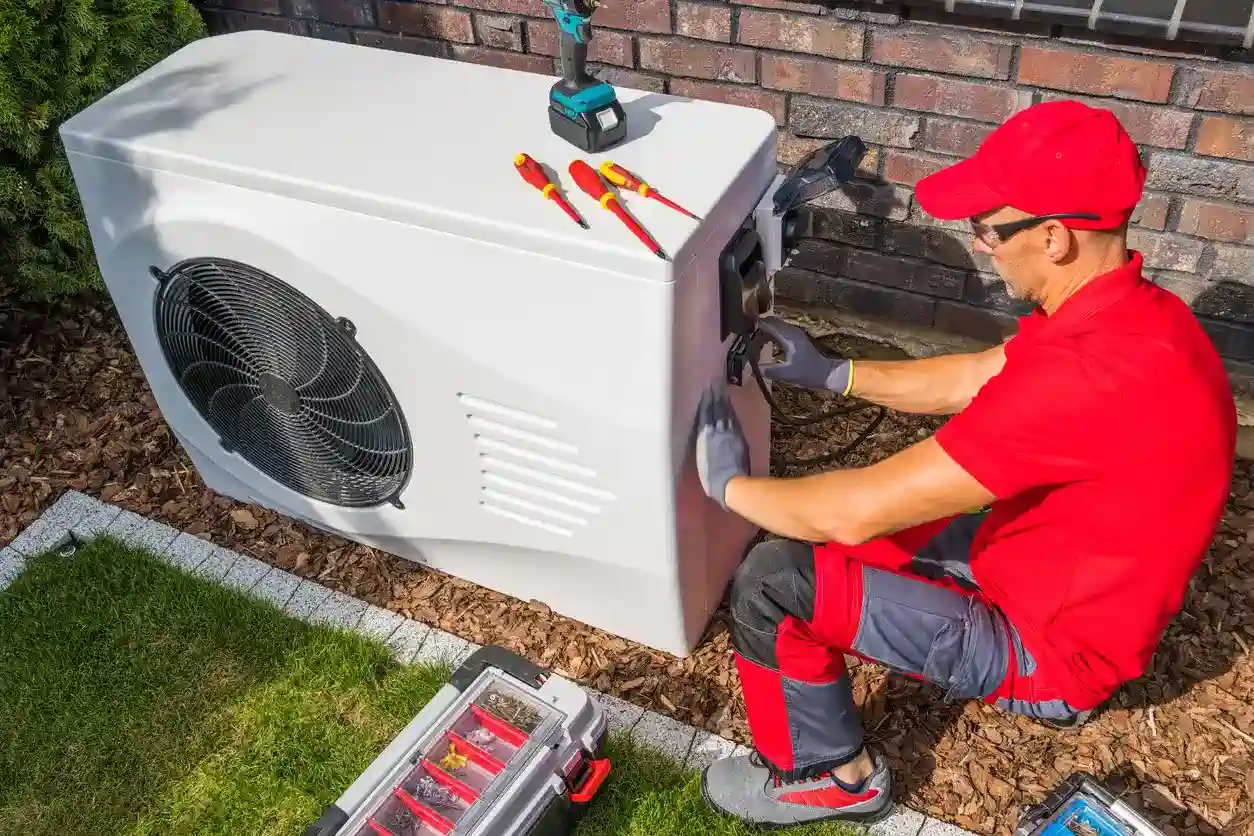
.avif)
Expert Heat Pump Tune-Up Services in Los Gatos
Your heat pump is the silent workhorse of your Los Gatos home, providing essential heating during the winter and reliable cooling through warm California summers. To ensure it operates at peak performance year-round, professional maintenance from Precision Heating & Cooling isn’t just a recommendation—it’s a necessity. A regular, comprehensive tune-up protects your investment, enhances comfort, and helps prevent unexpected, costly breakdowns that often happen at the worst possible times. Our specialized heat pump tune-up service is designed to address every critical component of your system, ensuring it runs efficiently and dependably, no matter the season.
What Does Our Comprehensive Heat Pump Tune-Up Include?
When you schedule a tune-up with our expert technicians at Precision Heating & Cooling, you receive far more than a quick glance at your system. We perform a meticulous, multi-point inspection and service designed to restore your heat pump to its optimal condition. We believe Los Gatos homeowners deserve a thorough and transparent service, which is why our process is broken down into three key stages: Inspection, Cleaning, and Calibration.

Detailed System Inspection
The foundation of any effective tune-up is a complete diagnostic inspection. Our technicians systematically check every vital part of your heat pump to identify potential issues before they escalate into major problems.
- Electrical Components: We inspect all wiring, terminals, and capacitors for signs of wear, corrosion, or damage. Tightening loose connections prevents electrical shorts and improves safety.
- Refrigerant Levels: We check refrigerant pressure to ensure it meets manufacturer specifications. Improper levels can drastically reduce efficiency and damage the compressor.
- Thermostat Function: We verify thermostat communication with the heat pump for accurate temperature control and efficient operation.
- Safety Controls: All safety switches and controls are tested to confirm proper function, protecting your system and your home.
- Ductwork Inspection: A visual inspection of accessible ductwork identifies leaks, blockages, or disconnections that could rob your home of conditioned air.
Thorough Component Cleaning
Over time, dust, pollen, and debris accumulate on critical components, forcing your system to work harder and consume more energy. Our deep cleaning process at Precision Heating & Cooling restores efficiency and reliability.
- Coil Cleaning: Both indoor evaporator and outdoor condenser coils are cleaned to improve heat transfer—essential for efficient heating and cooling.
- Condensate Drain Line: We flush the condensate drain line to clear algae or sludge buildup that could cause water damage or shutdowns.
- Blower Assembly: The indoor blower wheel and motor are cleaned to maintain maximum airflow and consistent comfort.
- Outdoor Unit: We remove leaves, grass clippings, and debris to ensure proper airflow across the condenser coil.
Precise Lubrication & Calibration
Fine-tuning your system is the final step to maximizing performance and longevity.
- Lubrication: All moving parts, including motor bearings, are lubricated according to manufacturer guidelines to reduce friction, lower energy use, and extend lifespan.
- System Calibration: We measure temperature split, check airflow, and verify heating and cooling cycles to ensure every setting is optimized for your Los Gatos home.
- Final Performance Test: Once the service is complete, our technicians at Precision Heating & Cooling run your heat pump through a full operational cycle to confirm that it’s heating and cooling effectively, quietly, and efficiently.
Frequently Asked Questions About Heat Pump Maintenance
How often should I schedule a heat pump tune-up?
For optimal performance and to maintain most manufacturer warranties, Precision Heating & Cooling recommends a professional tune-up once a year—preferably in spring before the cooling season or in fall before heating demands begin.
What are the signs my heat pump needs a tune-up?
Common indicators include rising energy bills, strange noises (grinding, squealing, clanking), reduced heating or cooling output, frequent cycling, or poor airflow from vents. If you notice any of these, schedule service promptly.
Can a tune-up really save me money?
Absolutely. A well-maintained heat pump can operate up to 25% more efficiently than a neglected one. That translates directly into lower monthly utility bills. Proactive maintenance with Precision Heating & Cooling also helps you avoid costly emergency repairs by catching small problems early.
Is a tune-up for a heat pump different from one for an air conditioner?
Yes. Because a heat pump provides both heating and cooling, it requires a more comprehensive tune-up. This includes checking components like the reversing valve and defrost controls, which are not found in standard air conditioners.
What happens if I skip my annual maintenance?
Skipping tune-ups can lead to reduced efficiency, higher energy costs, and a shorter system lifespan. It also increases the risk of sudden breakdowns that compromise comfort when you need it most.
Keep Your Home Comfortable Year-Round
At Precision Heating & Cooling, we understand that your comfort depends on a reliable and efficient heat pump system. Our expert technicians are dedicated to keeping your equipment in top condition through precision maintenance and detailed care. Whether it’s preparing for the summer heat or winter chill, our tune-up services ensure your home stays comfortable and energy-efficient all year long.
Don’t wait for a breakdown—schedule your professional heat pump tune-up in Los Gatos with Precision Heating & Cooling today and enjoy dependable comfort in every season!














.avif)





